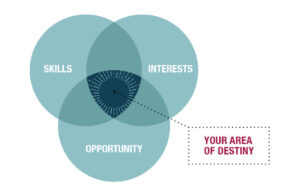Six Steps to a Better Career
Jack Welch is one of the world’s most respected and celebrated business icons, known for his track record of success, enormous love of people, fierce passion for winning, and unbridled desire to change the world for the better using his unique management practices.
As chairman and CEO of General Electric, he increased his company’s stock by 4,000% between 1981 and 2001. Here are some of his top career tips useful for today’s millennials.
1 – Find where your passion and skills intersect.
Find what you love and involve that in your daily life. Although your greatest opportunities and deepest passions may not overlap entirely, it’s a good practice to include enjoyable tasks in your work life. 
Once you find where your skills and interests intersect, Jack Welch recommends that you overlay that with opportunity to avoid targeting a market in which nobody is hiring.
2 – Over deliver.
Do more than what you think will be sufficient. You should always be asking yourself whether your work is above average. It is nobody’s responsibility but your own to prove your worth in your position, company, or field of work. By taking on work that no one else will, you can show your boss initiative and build credibility.
3 – Act on feedback.
Candor is one of the most important concepts a company can value. Because it is impossible for you to see your performance objectively 100% of the time, it’s important to seek candid, regular advice from supervisors, colleagues, and friends.
Mr. Welch tells us that, “Feedback from anyone is good. Synthesize it, decide whether you want to act on it or not, but make a conscious decision not to blow it away.”
4 – Don’t fear failure, embrace it head-on.
Things will go wrong (unexpected termination, bad bosses, dead-end jobs, economic downturns). You must look at the facts, do a self-evaluation, and move on to take the next opportunity.
Your reaction in times of failure reveal true character – don’t let it reflect badly on you and you will stand apart from the masses.
5 – Lead others.
Prepare for the possibility of leadership now rather than later. Practice taking on a mindset that different people succeed in the same roles with different sets of skills. Today, shared leadership is more important than ever because managers focus on their employees – not themselves.
Conduct a self-evaluation of your résumé, skill set, experience, and interest. When you identify areas in which you are lacking, make a game plan for tackling them head-on.

6 – Never stop learning.
Only those who are naive think that questions are a sign of weakness. Ask important questions – learn about the industry that interests you and its newest innovations. Never settle for “good enough.”



